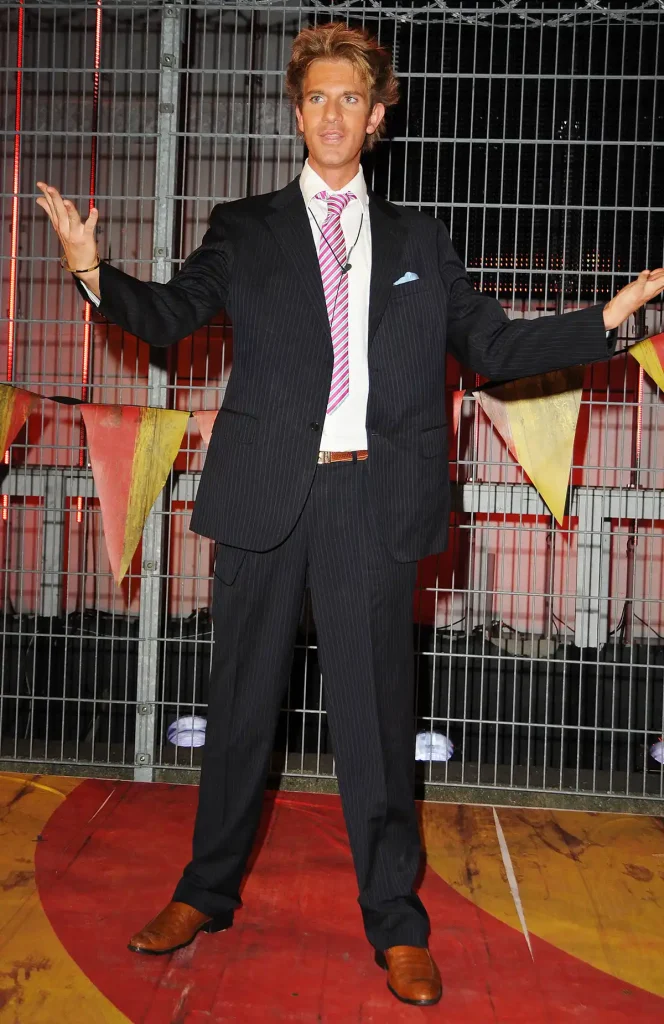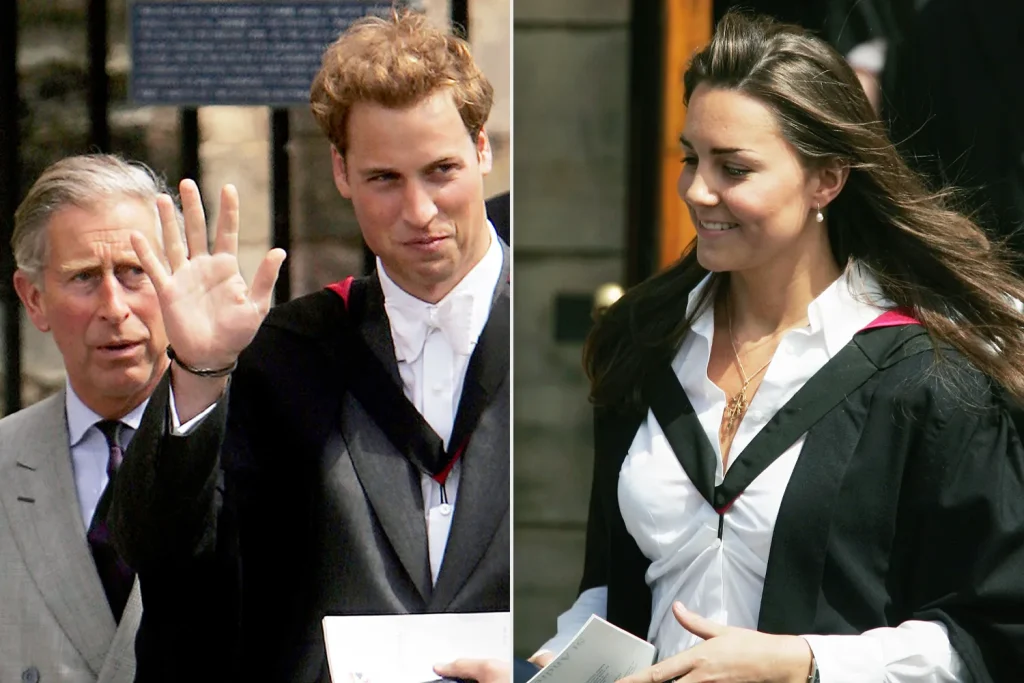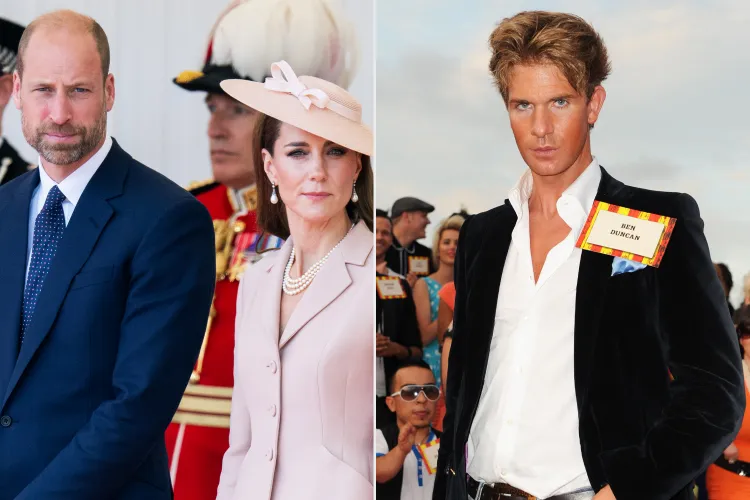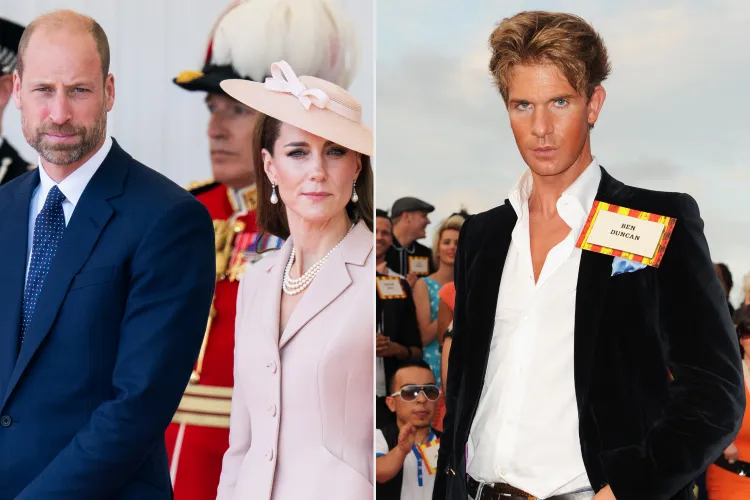Former Big Brother Star and University Friend of Prince William and Kate Middleton, Ben Duncan, Passes Away After Tragic 100-Foot Fall from London Rooftop
The entertainment world was hit with a sudden and heartbreaking blow this week as Ben Duncan — a distinct figure in reality television, a socialite with ties to the British royal family, and a former classmate of Prince William and Kate Middleton at the University of St Andrews — has died following a tragic fall from a rooftop bar in London. Authorities confirmed that the 45-year-old was pronounced dead at the scene after falling from the rooftop of the luxury Trafalgar St. James Hotel in Westminster on the night of October 30. The incident, described as “unexpected but non-suspicious,” has left friends and family grappling with the loss of a bright, unconventional personality.

In the early hours of that evening, officers from the Metropolitan Police Service responded to a call around 11:02 p.m. concerning a man on the roof of the building situated on Cockspur Street in Westminster. After determining the unfortunate fall, paramedics from the London Ambulance Service and trauma teams were deployed, but despite their efforts, Duncan was declared dead at the scene. The UK police were clear that although the death was sudden and tragic, there were no indications of foul play.
Ben Duncan’s journey to public fame began in the hallowed halls of Scotland’s St Andrews, where he overlapped academically with Prince William and Kate Middleton during their undergraduate years. It was during that period of youthful promise and blossoming relationships that Duncan later recalled memorable moments of his future royal friends’ courtship. He painted vivid recollections of the campus fashion show where Middleton caught William’s attention, describing how he could literally see William’s eyes “like stalks” as he sat front row. This decades-old memory added a layer of poignancy to the news of Duncan’s passing — he wasn’t just a reality TV alum but a thread in the early chapters of a very public love story.

After university, Duncan shifted into the public eye. He appeared on the eleventh season of the UK’s Big Brother, where his witty, sarcastic personality left an impression. He later featured on other reality programs such as Come Dine With Me, Ladette to Lady, and Celebrity Coach Trip, giving him a presence in British popular culture beyond the royal connection. Friends described him as someone whose charm, quick wit, and sense of style made him a fixture in social circles. One broadcast personality paid tribute, saying Duncan “lived life as Peter Pan — the boy who never grew up,” and that his infectious laugh would be missed.
The fatal incident took place at the rooftop bar of the Trafalgar St. James Hotel, a seven-story luxury property with a rooftop terrace overlooking one of London’s most iconic squares. Reports suggest the fall was from approximately 100 feet (seven stories), and while the rooftop bar is noted to have high protective barriers around its edges, the circumstances of how Duncan came to fall remain officially under investigation — though police emphasize the death is not being treated as suspicious. For family, friends, and fans, the tragic nature of the event underscores the fragility of life regardless of social status, connections, or fame.

No official comment has yet been made by Kensington Palace or the royal household regarding Duncan’s passing, although his connection with Prince William and Kate Middleton remains a significant part of his public profile. The early years at university, where the future king and queen of the United Kingdom were forming their bond, featured Duncan as a familiar presence in the periphery of that historic relationship. His reflections in interviews from 2010 show a man aware of his place in that circle, yet intent on forging his own path in television and social life.
What makes this story particularly resonant is the convergence of public and private identity. On one hand, Duncan’s participation in reality television amplified his visibility. On the other, his roots in the University of St Andrews social scene and his presence alongside royal friends grounds the story in something more personal. He existed at a unique juncture of celebrity and royalty — not entirely absorbed by either, but linked to both, and now his passing invites reflection on how fame, memory, and connection interweave.
In the wake of his death, tributes have begun to flow across social media and through the channels of his former reality TV contemporaries. Josie Gibson, who won Big Brother Season 11 and shared the house with Duncan, posted an emotional message saying, “My heart goes out to Ben and his family… one of the most unique, hilariously funny, dry-witted guys I know.” Others who knew him in the television world, or during his time at university, offered messages recalling his humor, his presence, and the spaces he enlivened.
For the broader public, the story challenges assumptions. It shows how individuals linked to high-profile networks may still live lives with unseen pressures, private struggles, or unexpected tragedies. Duncan himself once admitted that with the visibility of a show like Big Brother came constant pressure and that he sometimes became “snappy” — a candid admission that speaks to the toll of living under the lens of public attention.
While the investigation into the exact circumstances of his death remains ongoing, what is already clear is the loss of a vibrant personality who touched multiple worlds — reality television, social circles of prominence, and the quieter network of university friendships with royals. His life path was not conventional, but that very unpredictability endeared him to many. His story will be remembered as one that defied the ordinary tracks of fame, and ended with the abruptness of the unexpected — leaving many questions in its wake.
In a moment defined by sorrow, there’s an invitation to reflect on how we view fame, friendships, and the passage of life. Ben Duncan’s trajectory reminds us that the brightest smiles sometimes mask hidden battles, that connection doesn’t insulate against tragedy, and that even those who tread the limelight are not shielded from the caprices of chance. As tributes continue and more emerges about the circumstances, the memory of his laugh, his energy, and his role in a moment of royal and cultural history will endure.



